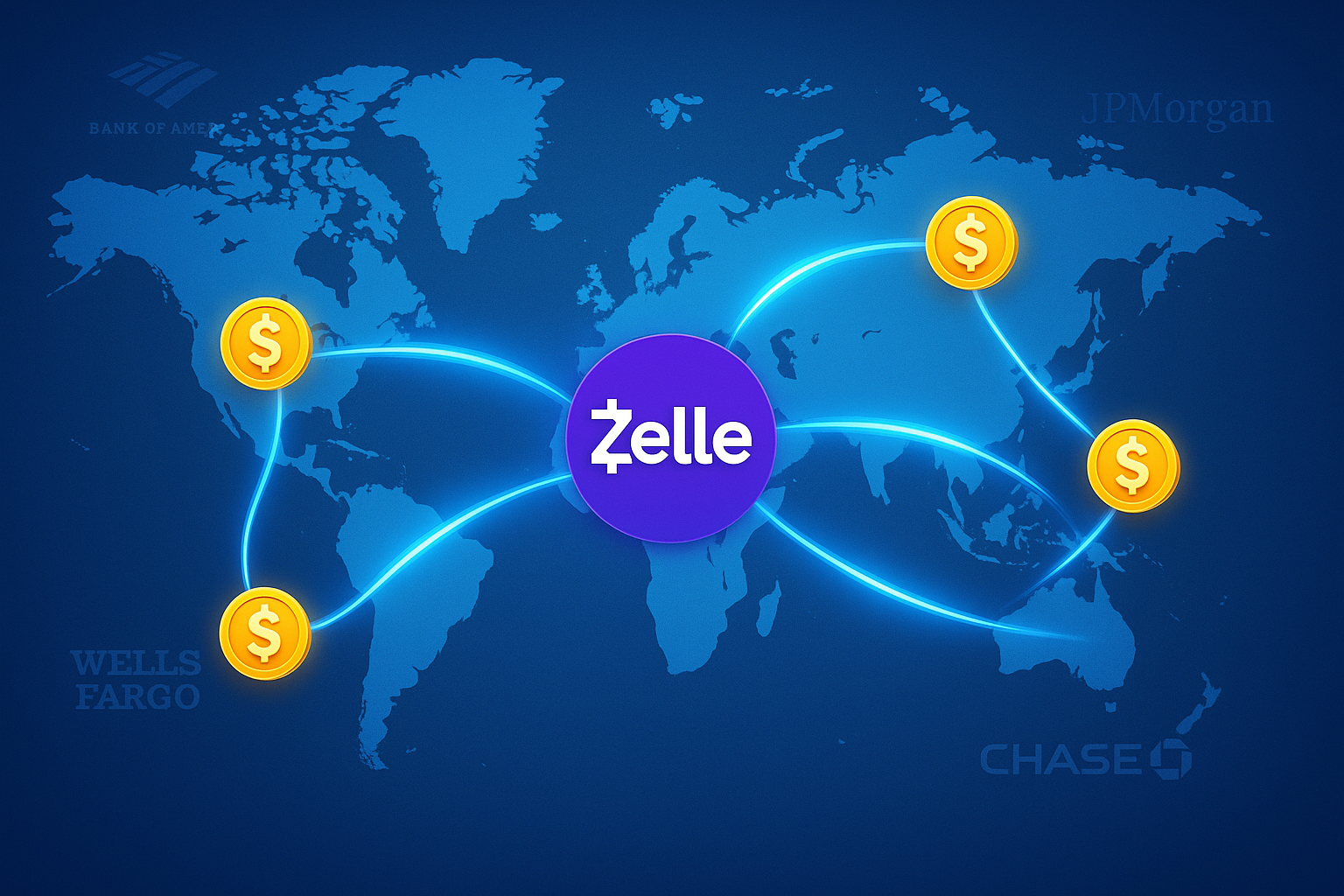Payment processor Zelle taps stablecoins for cross-border payments

- Zelle will use stablecoins for faster cross-border money transfers.
- The recently passed GENIUS Act in the US gives clear rules, fueling Zelle’s global innovation push.
- Major US banks are backing Zelle’s blockchain-based cross-border network.
Zelle, the payments processor that is widely used by millions of Americans for instant peer-to-peer (P2P) transfers, will now use stablecoins to power international transactions.
Notably, the move, announced by Zelle’s parent company Early Warning Services, underscores how digital tokens backed by fiat currencies are rapidly reshaping global finance.
Zelle goes global with the stablecoins integration
For years, Zelle has been a staple of domestic banking apps, allowing users to send and receive money in seconds.
Now, Early Warning Services says it will expand that speed and reliability to cross-border transfers using stablecoins.
The initiative aims to make international payments as seamless as Zelle’s domestic ones — faster, cheaper, and more dependable than traditional methods.
“Zelle transformed how Americans send money at home,” said Early Warning CEO Cameron Fowler.
“Now, we’re beginning the work to bring that same level of speed and reliability to Zelle consumers sending money to and from the United States.”
Fowler added that the company is investing where “consumer need, bank capability, and global opportunity intersect.”
Early Warning Services, jointly owned by Bank of America, JPMorgan Chase, Wells Fargo, Capital One, PNC, Truist, and US Bank, said the initiative will be available to all financial institutions in the Zelle Network.
The company, which partners with more than 2,500 banks and credit unions, described the new program as a foundation for “faster and more reliable cross-border money movement.”
Zelle’s move is fueled by regulatory clarity in the US
Zelle’s international expansion comes amid a friendlier regulatory climate for digital assets in the United States.
The US GENIUS Act, signed into law earlier this year, created a federal framework for issuing and overseeing stablecoins.
Early Warning CEO said that with clearer rules, Zelle can innovate “more quickly” and focus on safely scaling its network across borders.
Under the Trump administration, regulators have taken a more accommodating stance toward blockchain-based assets.
That clarity has encouraged not only Zelle’s parent company but also major corporations like Amazon, Meta, and PayPal to explore their own stablecoin projects.
And the timing is right. According to market data from Myriad, the total capitalisation of stablecoins stands at $312 billion and is projected to exceed $360 billion by January 2026.
Standard Chartered recently estimated that stablecoins could shift as much as $1 trillion in deposits away from banks in emerging markets within three years.
In addition, Zelle’s decision also reflects intensifying competition in global payments.
Fintech players such as PayPal, Revolut, and MoneyGram have already built cross-border offerings that appeal to younger, digital-first users.
Traditional remittance providers like Western Union face growing pressure as new technology makes international transfers faster and less expensive.
Despite entering the peer-to-peer space later than Venmo or Cash App, Zelle quickly became a dominant force in domestic payments.
It now processes roughly twice as many daily transactions as Venmo and five times as many as Block’s Cash App.
That scale gives Early Warning Services confidence that its stablecoin-powered model can compete globally, backed by the trust and regulatory credibility of the US banking system.













